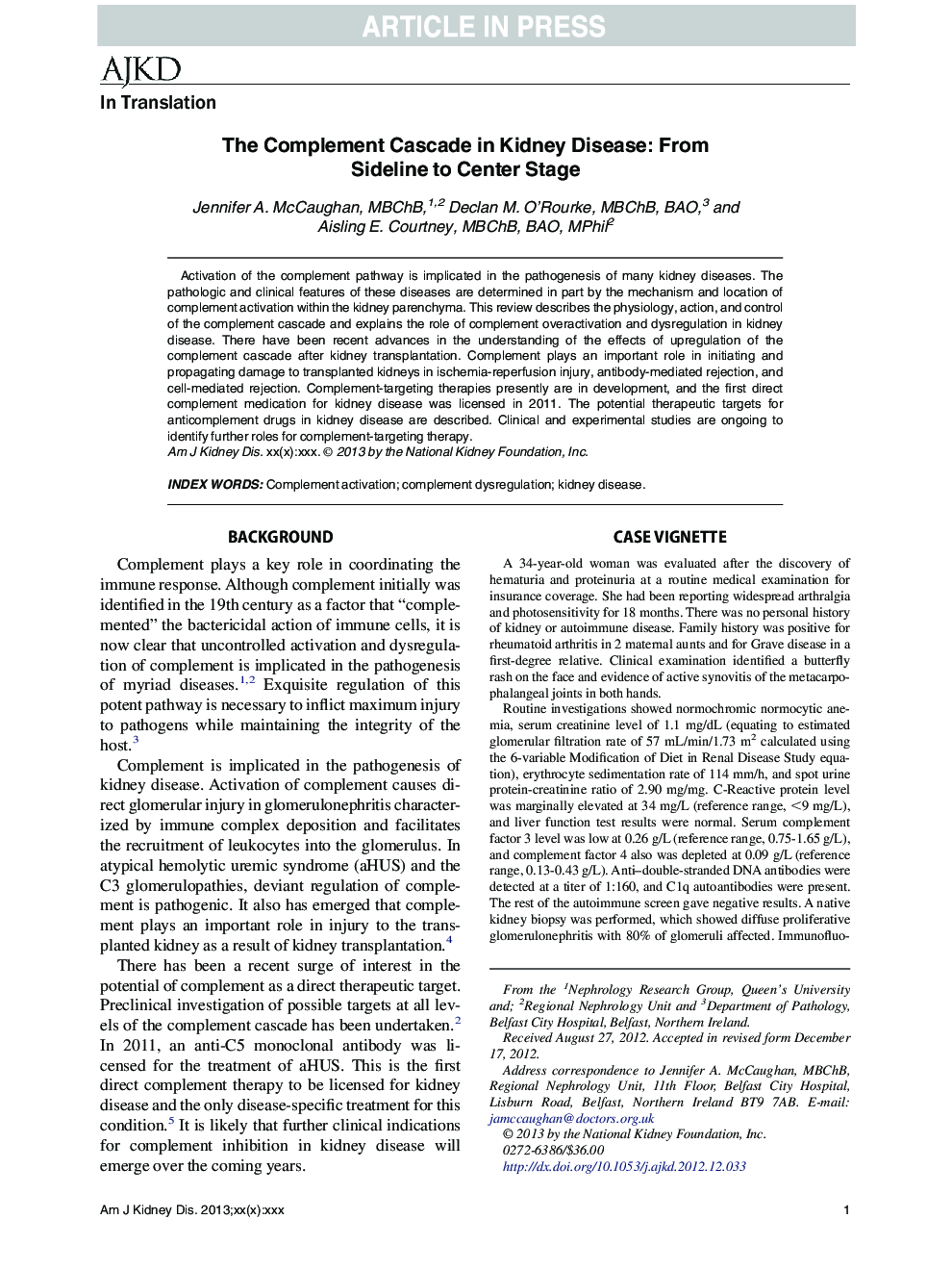| Article ID | Journal | Published Year | Pages | File Type |
|---|---|---|---|---|
| 3848412 | American Journal of Kidney Diseases | 2013 | 11 Pages |
Abstract
Activation of the complement pathway is implicated in the pathogenesis of many kidney diseases. The pathologic and clinical features of these diseases are determined in part by the mechanism and location of complement activation within the kidney parenchyma. This review describes the physiology, action, and control of the complement cascade and explains the role of complement overactivation and dysregulation in kidney disease. There have been recent advances in the understanding of the effects of upregulation of the complement cascade after kidney transplantation. Complement plays an important role in initiating and propagating damage to transplanted kidneys in ischemia-reperfusion injury, antibody-mediated rejection, and cell-mediated rejection. Complement-targeting therapies presently are in development, and the first direct complement medication for kidney disease was licensed in 2011. The potential therapeutic targets for anticomplement drugs in kidney disease are described. Clinical and experimental studies are ongoing to identify further roles for complement-targeting therapy.
Related Topics
Health Sciences
Medicine and Dentistry
Nephrology
Authors
Jennifer A. MBChB, Declan M. MBChB, BAO, Aisling E. MBChB, BAO, MPhil,
